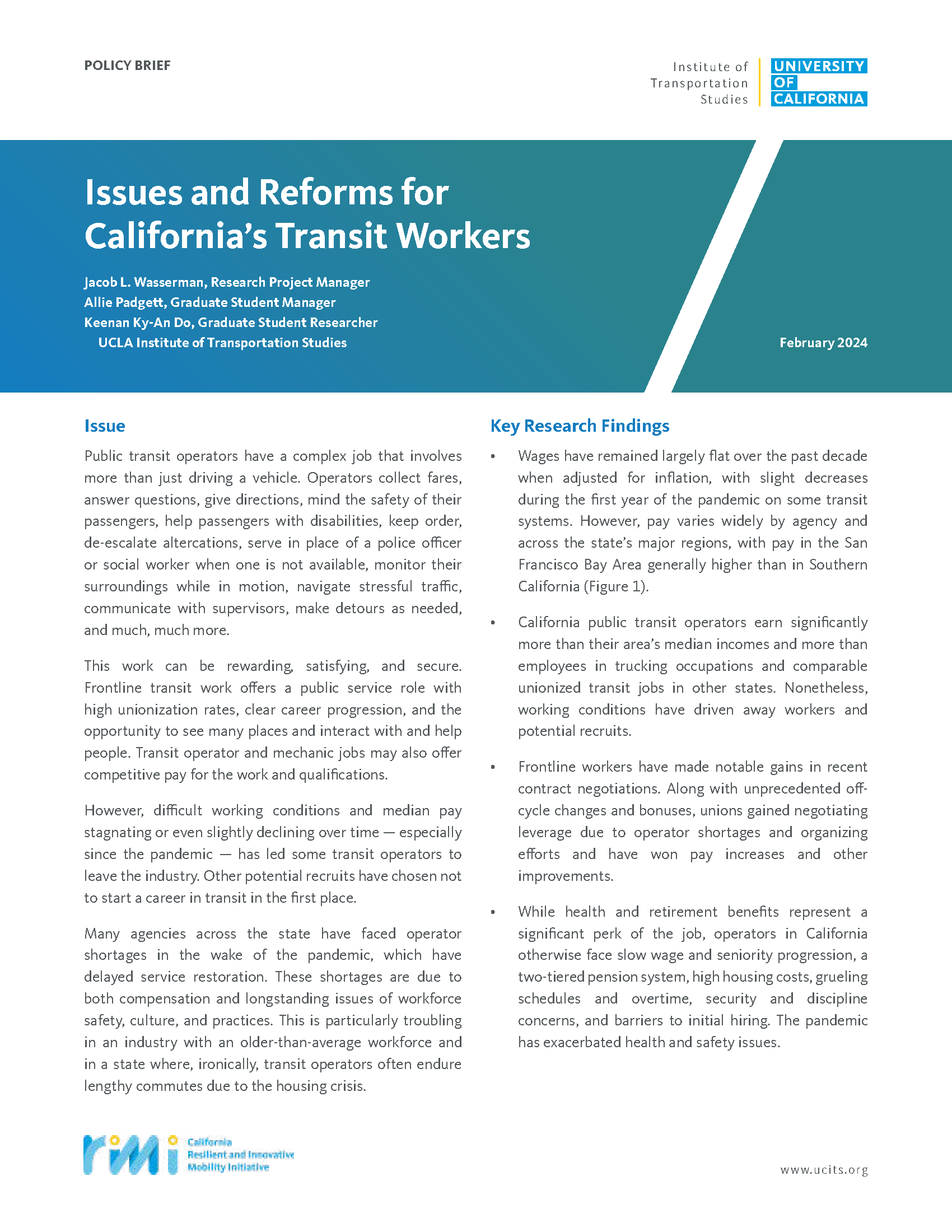Date: February 23, 2024
Author(s): Jacob L. Wasserman, Allie Padgett, Keenan Ky-An Do
Abstract
Many agencies across the state have faced operator shortages in the wake of the pandemic, which have delayed service restoration. These shortages are due to both compensation and longstanding issues of workforce safety, culture, and practices. This is particularly troubling in an industry with an older-than-average workforce and in a state where, ironically, transit operators often endure lengthy commutes due to the housing crisis.
About the Project
Frontline transit work can be satisfying and secure — but also stressful or unsafe. Many agencies across the state lacked transit operators in the wake of the pandemic, delaying service restoration. Interviews, wage data, and other sources demonstrate that these shortages were due to both compensation issues and longstanding issues of workforce safety, culture, and practices. Wages have stagnated over the past decade, though California operators earn more than their area’s median incomes, trucking employees, and comparable transit jobs in other states. Raises alone are necessary but not sufficient: pay is generally lower than necessary to attract and retain needed employees—and recent increases in pay and hardships in other aspects of the job point to the importance of factors beyond wages alone. Agencies, advocates, and unions will need to rethink and expand transit operations funding, raise wages, and implement a variety of reforms: reducing hiring hurdles, expanding outreach, making scheduling fairer, improving facilities and support offerings, removing enforcement duties from operators, and creating career pathways for advancement.


